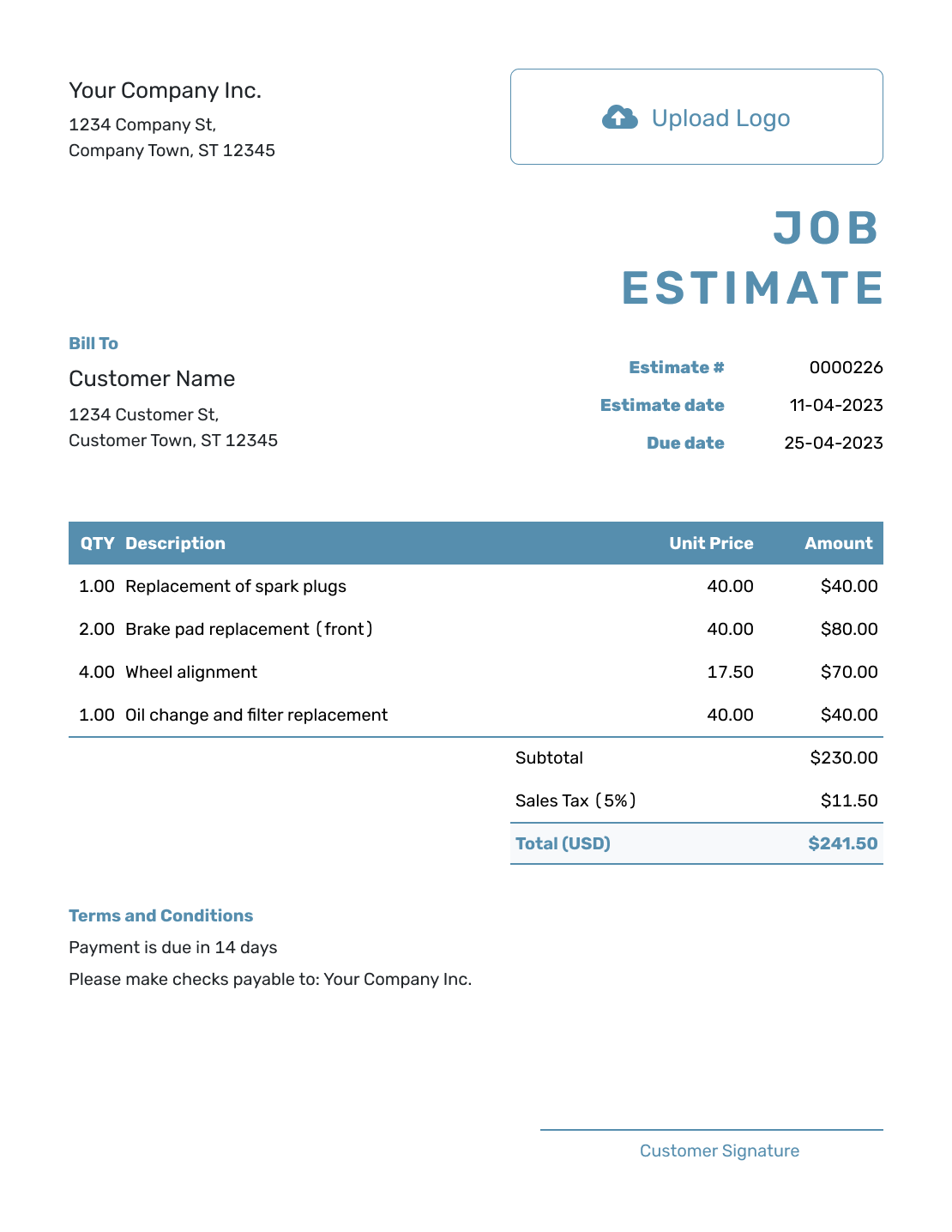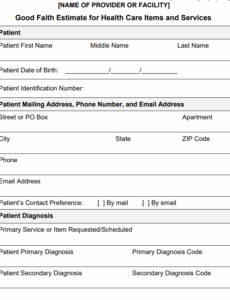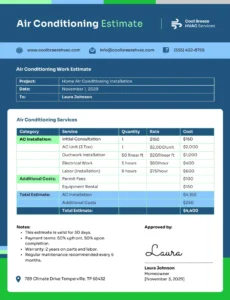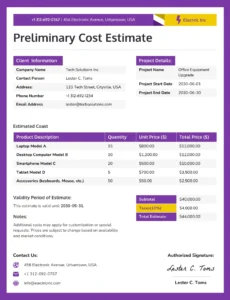“`html
In the bustling world of business, where efficiency and clear communication reign supreme, few tools are as universally valuable as a well-crafted proposal estimate template. Think about it: every time you quote a price, outline a service, or pitch a project, you’re essentially making a promise to your client. How you present that promise can significantly impact whether you win the business, build trust, and ensure a smooth project from start to finish.
This isn’t just about putting numbers on a page; it’s about professional communication, transparency, and setting clear expectations from the outset. For freelancers, contractors, small business owners, and even larger agencies, a robust proposal estimate template isn’t merely a document; it’s a strategic asset that saves time, minimizes misunderstandings, and elevates your professional image. It transforms complex project details into an easy-to-digest format, fostering confidence in your clients and streamlined operations for your team.

The Power of Organized Planning and Professional Documentation
At the heart of every successful business relationship lies clarity. Clients want to understand what they’re paying for, how long it will take, and what the expected outcomes are. Organized planning, reflected in professional documentation, is the bedrock of achieving this clarity. It leaves no room for ambiguity, ensuring both parties are on the same page from day one.
Professional documentation isn’t just a nicety; it’s a necessity for building trust and ensuring transparency. When a potential client receives a comprehensive and professionally laid out business proposal, it immediately signals that you are meticulous, reliable, and serious about your work. This attention to detail in your client communication can be a significant differentiator in a competitive market.
Unlocking Key Benefits with Structured Forms
The beauty of using a structured form or template for your project pricing extends far beyond just looking good. It’s about optimizing your workflow, reducing errors, and creating a consistent brand experience. Imagine the time saved when you’re not reinventing the wheel for every new client or service estimate.
- Consistency: Ensures every quote adheres to your branding, legal requirements, and pricing structure, maintaining a professional image across all interactions.
- Efficiency: Drastically cuts down on the time spent creating new documents. Simply plug in client-specific details, and you’re ready to go.
- Accuracy: Reduces the likelihood of missed items or calculation errors, as the layout prompts you for all necessary information, including a detailed cost breakdown.
- Transparency: Clearly outlines services, deliverables, timelines, and costs, preventing scope creep and ensuring clients understand exactly what they’re getting.
- Legal Protection: Often includes sections for terms and conditions, payment schedules, and disclaimers, offering a layer of protection for both parties.
- Improved Sales Conversion: A professional and easy-to-understand quotation form inspires confidence, making clients more likely to say “yes.”
By leveraging such a powerful document, you’re not just providing an invoice template; you’re offering a comprehensive view of your proposed solution, setting the stage for a successful partnership.
Adaptability Across Industries and Business Sizes
One of the most compelling aspects of a well-designed proposal estimate template is its incredible versatility. It’s not a one-size-fits-all solution, but rather a flexible framework that can be tailored to an almost endless array of business needs. Whether you’re a solo freelancer, a burgeoning small business, or a multi-department agency, this form can be adapted to fit your specific requirements.
For instance, a freelance graphic designer might use a simpler version to outline a logo design package, while a construction contractor could use a more detailed job cost sheet to itemize materials, labor, and subcontractors for a large build. Service providers, from consultants to marketing agencies, can customize the layout to reflect their unique service offerings, project milestones, and value propositions. The core structure remains, but the content and specific sections evolve to meet the context, proving itself an indispensable business file.
When a Proposal Estimate Template Shines Brightest
While useful in many scenarios, there are particular situations where having a polished quote readily available can be a game-changer. These are moments when clarity, speed, and professionalism can directly impact your bottom line and client perception.
- Responding to RFPs (Requests for Proposals): When time is of the essence and a comprehensive response is critical, having a structure ready to populate with project-specific details saves invaluable hours.
- Initial Client Consultations: After an exploratory meeting, presenting a preliminary service estimate helps to solidify understanding and move the conversation forward with concrete figures.
- Complex Project Bidding: For projects with multiple phases, deliverables, or a detailed cost breakdown, the template ensures all elements are captured and presented logically.
- Standardized Service Packages: If you offer tiered services (e.g., bronze, silver, gold packages), this layout provides a consistent way to present options and pricing to potential clients.
- Following Up on Leads: Quickly turning a warm lead into a concrete offer with a professional quote record shows efficiency and eagerness to collaborate.
- Onboarding New Clients: Clearly defining the scope and project pricing upfront minimizes disputes and sets positive expectations for the entire engagement.
- Budgeting and Forecasting: Using consistent templates provides valuable data for your internal budgeting and future project forecasting, as you can easily track past records.
Crafting for Impact: Design, Formatting, and Usability
A functional template isn’t enough; it also needs to be visually appealing and intuitively designed for both you and your client. Thoughtful design and formatting elevate your business file from a mere document to a powerful communication tool. Consider both print and digital versions, ensuring readability and accessibility across different mediums.
Begin with clear branding: your logo, company colors, and contact information should be prominently displayed. Use clean fonts and ample white space to prevent visual clutter, making the text easy to scan and digest. Headings and subheadings should guide the reader through the information logically. For the cost breakdown, use tables or clearly defined sections that itemize services, quantities, rates, and totals, avoiding any ambiguity.
Incorporate sections for scope of work, deliverables, timelines, payment terms, and calls to action. For digital versions, ensure the document is easily shareable, perhaps as a PDF, and is mobile-friendly. Consider interactive elements if applicable, such as fillable fields or clickable links to your portfolio. The goal is to make the experience of reviewing your project pricing as seamless and professional as possible, reflecting the high quality of your work.
Ultimately, a good design fosters usability. A client should be able to quickly find the information they need, understand the value you’re offering, and know the next steps. This attention to detail speaks volumes about your professionalism and dedication to exceptional client communication.
In conclusion, harnessing the power of a well-structured proposal estimate template is a game-changer for any professional or business looking to enhance their productivity, organization, and overall client experience. It’s more than just a piece of paper or a digital file; it’s a declaration of your professionalism, a commitment to clarity, and a powerful tool for streamlining your sales process. By investing time in creating or refining such a form, you’re not just saving yourself effort down the line, but you’re also building a stronger, more trustworthy brand.
This template serves as your silent salesperson and your meticulous record-keeper, ensuring that every interaction starts on the right foot. It empowers you to respond swiftly, confidently, and accurately, turning potential leads into loyal clients with ease. Embrace the strategic advantage that a comprehensive quote record offers, and watch as it transforms your business communication and boosts your credibility.
“`


